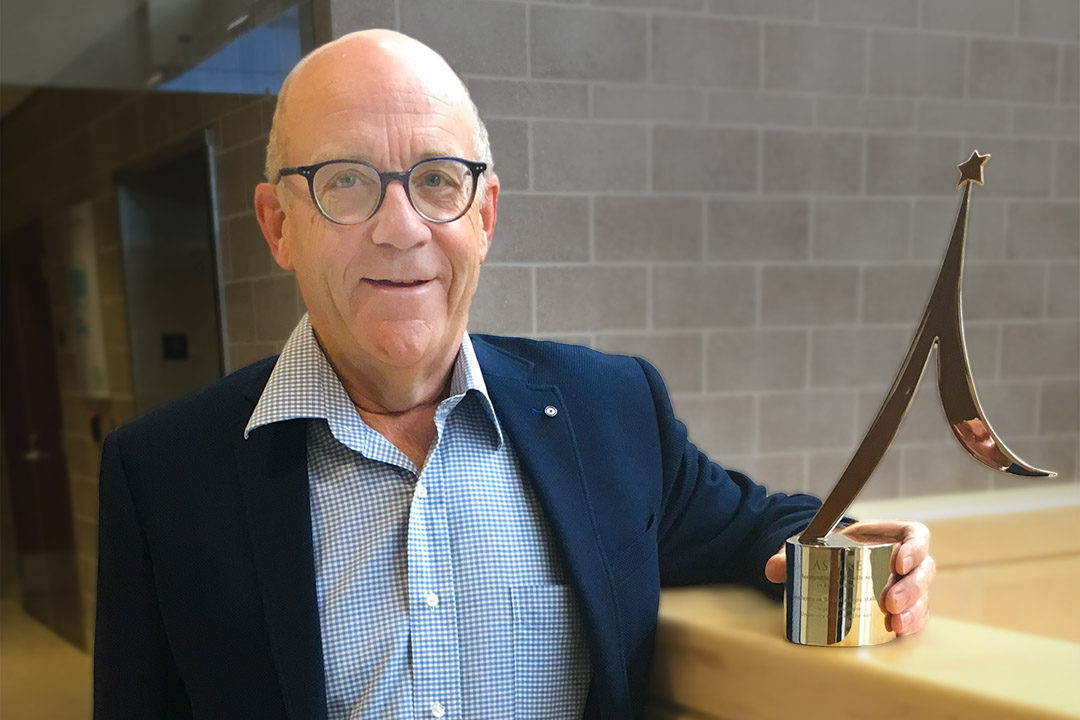
Medical school receives international ASPIRE award
The College of Medicine was recently recognized with a major award at a prestigious international conference.
By Kate BlauDean of Medicine Dr. Preston Smith accepted the ASPIRE-to-Excellence Award in Social Accountability, while attending the 2018 Association for Medical Education in Europe conference in Basel, Switzerland.
“This award provides incredibly significant and valuable feedback on the great work our college is doing across education, research and community engagement to address the most important health concerns of our province,” he said. “It tells us that our efforts to engage and support Indigenous and under-served communities, with our partners in government, education, research and health care, are on track.”
The award goes to the medical school that has shown international leadership and demonstrated deliberate and sustained efforts to integrate social accountability into all functions.
Among the college’s significant social accountability achievements over the past year was the implementation of the new Diversity and Social Accountability Admissions Program, which reserves six of the 100 seats in the medical doctor degree program for individuals from socioeconomically challenged backgrounds, beginning with the first-year class of 2018/19. All six seats were filled successfully in the first year, with 58 applicants in total.
“We’re not surprised to have filled the seats,” Smith said. “There are many very qualified individuals who don’t have the socioeconomic advantages that are quite common among medical school students. Our medical community should reflect the community we serve and this is an important step in that direction.”
The college continues to be a leader in Canada in Indigenous admissions, with 12 self-declared Indigenous students among the 100 first-year students for 2018/19. There is a total of 38 Indigenous students currently in the four-year MD program, and 89 who have graduated.
The college’s Division of Social Accountability (DSA) facilitates work in this area and directly leads several key initiatives, like the poverty simulation workshop delivered for the first time in 2018 to first-year medical students, in collaboration with the United Way of Saskatoon. It also co-ordinates and studies student involvement with community-based organizations and initiatives, including the Saskatoon Refugee Health Collaborative, YXE Connects and the Saskatoon Poverty Reduction Partnership.
The division continues to lead the college’s successful program, Making the Links Certificate in Global Health, which annually accepts up to 15 students for advanced training in socially accountable care. Training relies on community partnerships and involves students working in the urban core of Saskatoon or Regina, as well as six-week placements in one of four rural Indigenous communities in Saskatchewan, and an advanced six-week practicum in Indigenous health or underserved international populations. Graduates of the program are more likely to stay in Saskatchewan, train in primary care, and work in rural areas.

